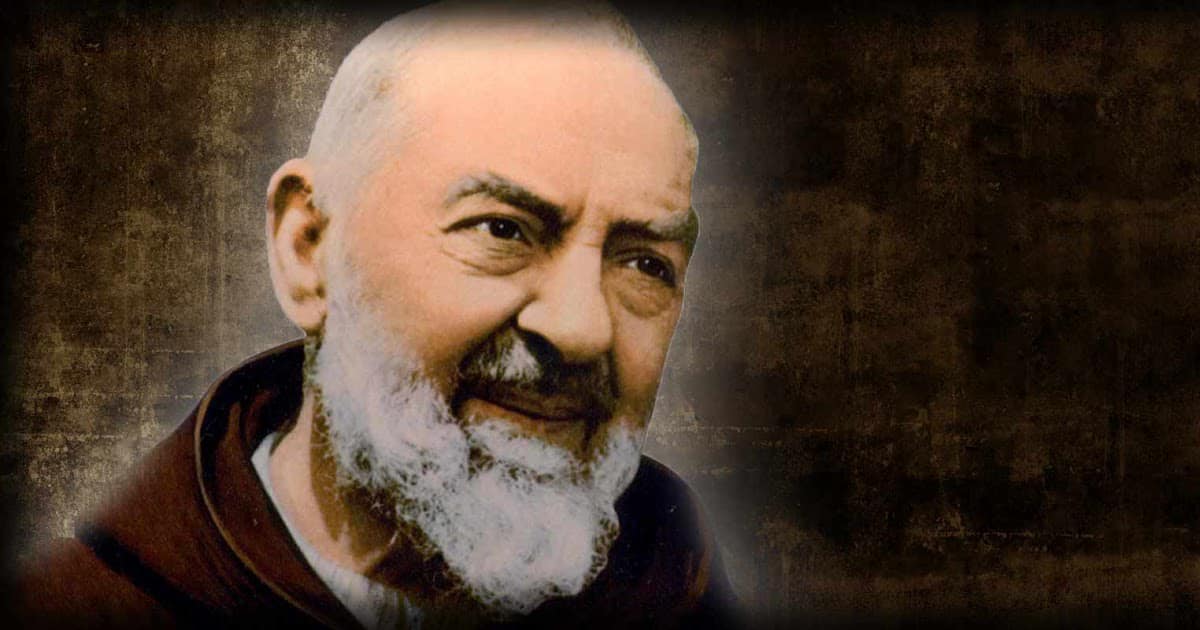193 total views
Homily for Friday of the 25th Week in OT, Feast of St. Padre Pio of Pietrelcina, 23 Sept 2022, Lk 9:18-22


Our first reading from Ecclesiastes chapter 3 about there being an opportune time for everything and every affair under the heavens is one of my favorite texts in the Old Testament. As you listen to it you are carried by the poetry in every line, especially if you are beginning to grow old and are beginning to feel like you are running out of time.
I wonder if you are familiar with that famous singer and song writer, Jim Croce, who wrote a song entitled TIME IN A BOTTLE. Apparently, he composed that famous song in 1971 when he learned that his wife was pregnant. He died in a tragic plane crash in 1973 and his song, which I also call a little piece of poetry suddenly became a number 1 hit on American radio.
Jim Croce must have felt such a profound joy about the news that he was going to become a father, he expressed it beautifully in that song. I think the song became a top grosser because he sounded like he was verbalizing a premonition that he would not live long enough to see his child grow into an adult. He probably felt very much like the author of our first reading, that time was flying away too fast, and how he wished he could freeze time or keep such fleeting moments of joy to eternity.
I think what people loved most about Jim Croce was the fact that he strummed his guitar in such a haunting way, suggesting the constant flow of the exciting and the frustrating, the high and the low points in his life. At some point in the song, he plucks the strings and suspends the tune in a tremolo so that the guitar sounds like it is weeping tears, tears of joy, sort of asking if it was foolish at all to wish that such moments in life could last forever. He said in his song,
“If I could save time in a bottle, the first thing that I’d like to do is to save every day till eternity passes away just to spend them with you. If I could make days last forever, if words could make wishes come true, I’d save everyday like a treasure and then again, I would spend them with you.”
Ecclesiastes is saying something like this too in our first reading. Too bad, we tend to think that the poem ends at that part where he says, “There is a time to love and a time to hate, a time of war and a time of peace.” Actually, the real end of this piece of poetry is in the lines in prose that follow the poetry. The line where he says, “He has made everything appropriate to its time, and has put the timeless into their hearts.” I suggest you spend time reflecting on this line for the rest of this day. It is really the point of his poetry, what he wanted to say to his readers: GOD HAS PUT THE TIMELESS INTO OUR HEARTS.
This reminds me also of Salvador Dali, that eccentric Catalan artist and painter who puzzled people with his bizarre painting of a clock melting in the foreground, as well as a horse and the horizon also melting in the background. I have a feeling that he is also making a statement about time and space, about the fluidity of all created reality, and the challenge of finding the key to timelessness.
If I had the time to extend this reflection further, I’d dwell a little bit more on the Gospel—where Jesus seems to be expressing his own premonition, that his days were numbered, that his time was up. Instead of running away from the threat of his very limited time, he leaves the secret of timelessness. He does not speak about melting time like Dali or putting time in a bottle like Jim Croce. Instead, he speaks about the readiness to suffer, die and rise again, the readiness to give one’s life as a ransom for the many.
St Luke says Jesus was praying in solitude when this conversation took place. It was through prayer that he anchored his limited time on earth on that which Ecclesiastes calls the timelessness that God has planted in our hearts. Padre Pio had done the same thing in his lifetime, and leaped into the timelessness of sainthood. He learned well from his master, the one whose wounds he carried in his mortal body.













